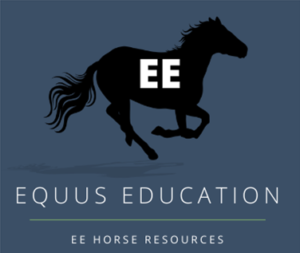Recently I saw a post on Facebook about someone having completed their Bachelor of Equine Science. As I looked further, I found that this someone also happened to provide business coaching for farriers – fascinating! I reached out to Lisa to see if she would be willing to answer some questions about what she does. Her answers are below.
How much of your day/week is related to horses?
Horses are part of my life every single day – whether I’m working with them hands-on or supporting the humans who care for them. I’d say 80–90% of my week is horse-related in some way. That includes trimming, consulting, mentoring other professionals, and teaching business skills to equine service providers.
What is it exactly that you do?
I’m a hoof care professional and business mentor for equine professionals. I work both with horses (doing rehabilitative, performance and maintenance hoof care) and with people (helping farriers and trimmers build sustainable, profitable businesses through education and coaching). I run The Glorious Hoof Academy, which blends small equine business education with mindset, marketing, and business systems training.
I also hold a Bachelor of Equine Science, and I’m passionate about using research to advance our understanding of the equine hoof. My dream is to contribute meaningful, evidence-based knowledge to the industry by developing a portfolio of published research projects that help both horses and humans.
Profile on Lisa, the Glorious Hoof Academy

In this field of work, is it possible to be a full-time professional and earn a liveable income?
Yes, absolutely, but not without a strategy. Many hoof care professionals burn out because they’re undercharging, overworking, and trying to do everything alone. That’s part of why I created my coaching programs: to show that with the right boundaries, pricing, and systems, it’s not only possible to earn a full-time income, it’s possible to thrive, for the long term.
What are the general steps to be employed in such a role?
Most trimmers and farriers in Australia operate as sole traders, so it’s more common to be self-employed than traditionally “employed.”
The general pathway would be:
- Complete a formal qualification (e.g., Certificate IV in Farriery or a private barefoot trimming course).
- Undertake mentorship or supervised practice.
- Build your client base, usually starting local and expanding by referral or travel runs.
- Ongoing professional development is key – both in hoof care and in running a business.
Favourite horse memory?
It’s not one single memory – it’s a series of them. Every time I sit on my horse, it feels like coming home. There is truly nothing better than just being with my heart horse, Allie. She’s my grounding space, my joy, and my reminder of why I do what I do.
Future goals?
My big picture is to scale The Glorious Hoof Academy so I can support more equine professionals worldwide. I’d love to create a national network of hoof care professionals that I’ve mentored, continue developing educational programs, and run in-person intensives and retreats that combine hoof care, wellness, and business growth.
I’m also in the early stages of planning research projects into equine hoof health, with the long-term goal of building a published portfolio that helps the industry better understand horses and their hooves.
Best thing about your profession?
The connection – with horses, clients, and the community. There’s nothing like the trust you build with a horse over time, especially one who’s come from pain or trauma. And I genuinely love watching other professionals step into their confidence and succeed in this work. It’s a beautiful blend of science, service, and soul.

Leave a Reply